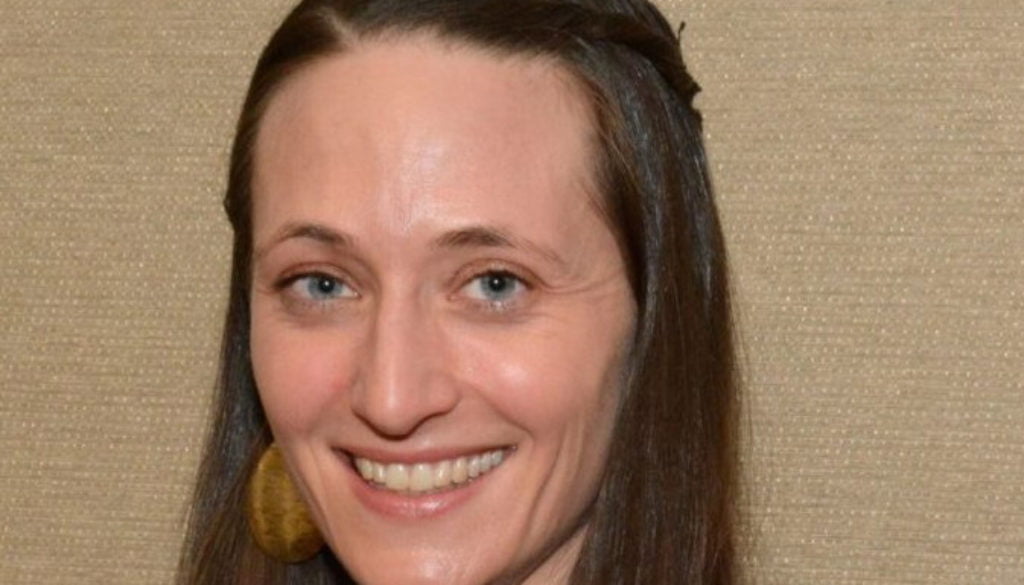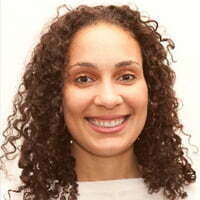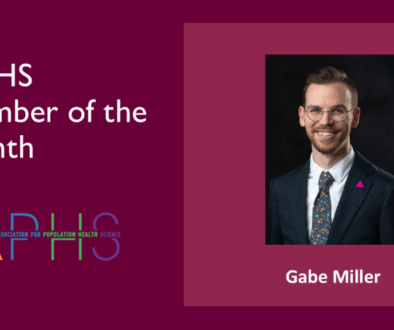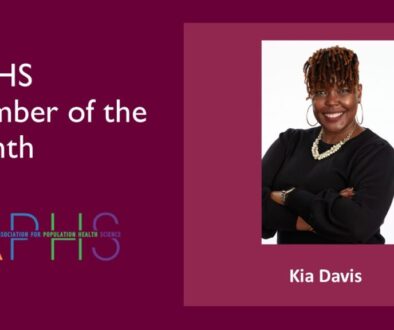Morgan Philbin is an Assistant Professor in the Department of Sociomedical Sciences at Columbia University Mailman School of Public. She joined IAPHS in 2016. Learn more about Morgan on her website and follow her on twitter: @morgan_philbin
Tell us a little about yourself, where are you from, where did you go to graduate school, what makes you jump out of bed each morning?
I’m from a small town in California (San Luis Obispo) that I still go back to every chance I get; there aren’t many places where you can start your day surfing and end with a hike up a mountain. I moved east for college (Wesleyan University) and graduate school (Johns Hopkins Bloomberg School of Public Health) with some year-long detours in Tijuana, Mexico, and Beijing/Kunming, China. As for getting out of bed, I really enjoy my colleagues and being in a truly interdisciplinary department. I’ve had so many great discussions that have started with “so I have this random question…”
How do you define yourself as a population health professional?
The first description that comes to mind is that I take a big qual/little quant approach to exploring how socio-structural factors impact the lives of vulnerable young people, particularly sexual and racial/ethnic minority youth. People often associate population health with giant, quantitative data sets but I’ve been working to integrate qualitative and ethnographic research into population health to try and provide a more nuanced picture of how things like state-level policies play out on the ground and impact people’s lives. This approach has also allowed me to work with individuals, and integrate theoretical approaches, from across multiple disciplines.
What disciplines do you engage with and are there disciplines that you would like to engage with?
My Masters and PhD are in public health, but nearly all of my PhD-level coursework was in Anthropology and History of Medicine, and for my dissertation I worked most closely with adolescent medicine providers. My attempts to integrate the more theoretical framing of anthropology into a clinical perspective have forced me to think deeply about the questions I want to answer, whether I’m taking the correct approach, and what I might be missing. I’m also beginning to engage more with epidemiologists and legal scholars in my work on state-level policies, which has been both wonderful and challenging as I try to integrate a qualitative/ethnographic perspective into these collaborations.
Describe a current project/initiative that you are excited about.
I currently have a NIDA-funded K01 that is exploring how state-level policies impact substance use and sexual health risk behaviors for young people, particularly sexual minority youth. In particular, I’m interested in whether these policies (e.g., those governing sex education, STD/HIV testing and treatment, medical and recreational marijuana) may impact sexual minority youth differently than heterosexual youth. The study is mixed-methods which has allowed me to track back and forth between what we’re seeing in statistical models and conducting interviews with young people to see if the quantitative findings rings true and how they feel that policies play out in their daily lives. These interviews have also provided lots of additional ideas about questions that I can now go back and explore quantitatively.
Name a population health professional who you admire and why?
I really admire how people like Amy Fairchild, Ron Bayer, and James Colgrove have integrated a critical historical perspective into the study of population health. I read their book (Searching Eyes: Privacy, The State, and Diseases Surveillance in America) in a History of Medicine class in graduate school and it fundamentally changed the way I think about population-level health, what the field entails, and the type of interdisciplinary collaborations that might study it. Reading that book was one of the first times I realized that I could engage with population-level health questions as a (primarily) qualitative/ethnographic researcher. And, in addition to being brilliant, Amy, Ron and James are some of the kindest, thoughtful and most generous, scholars I’ve ever met. They also engage with individuals outside the walls of academia—including through activism—which I truly admire.
How did you hear about IAPHS?/Why did you decide to become a member of IAPHS?
I heard about IAPHS from faculty in my department who attended the first few meetings and raved about how great it is.
Have you attended an IAPHS meeting? If so, what do you like most about these meeting?
I’ve attended the last two meetings. Some of my favorite parts of those meetings were being around people who truly understood the type of work I’m trying to do; so often I’m that awkward “n of one” in a room who is trying to integrate social science theory into population health and it was wonderful to be around like-minded people.
What would you tell someone who is considering joining IAPHS?
See you in Seattle!
What would you like to see IAPHS do in the future?
As somebody who works a lot with anthropologists, I’d love to see more anthropologists included in the conference/discussions.
Favorite population health relevant book:
I mentioned it above but: Fairchild AL, Bayer R, Colgrove J. 2007. Searching Eyes: Privacy, The State, and Diseases Surveillance in America. University of California Press: Berkeley, CA
Favorite population health relevant article(s):
Bowleg L, et al. (2017) Intersectional Epistemologies of Ignorance: How Behavioral and Social Science Research Shapes What We Know, and Don’t Know about U.S. Black Men’s Sexualities. Journal of Sex Research. 54(4-5). 577-603.
The special issue of Social Science & Medicine that Maggie Hicken and colleagues edited (2018, volume 199) titled, “The role of Racism in Health Inequalities: Integrating Approaches from Across Disciplines”
Favorite movie, band, non-fiction, book, etc.:
Hmmm. I always have a hard time picking favorites but here are some that I enjoy (or that at least popped into my head while I was writing this).
Movies: Because I have such fond memories of watching them with my family I would say the original Star Wars trilogy. I also found Moonlight to be both stunning and haunting.
Albums: Graceland, Astral Weeks
Books: The Lord of the Rings trilogy; I re-read them when I’m writing grants because they let my mind wander and put things in perspective. Also, a Brief History of Time






All comments will be reviewed and posted if substantive and of general interest to IAPHS readers.